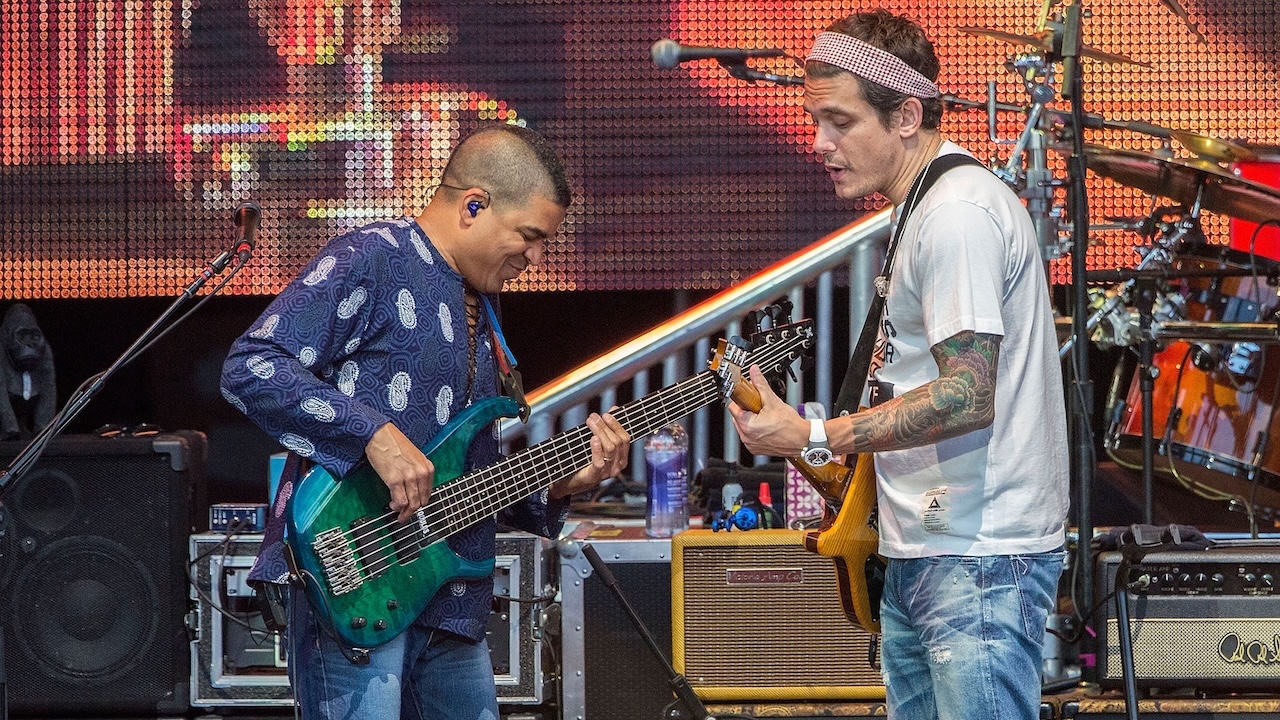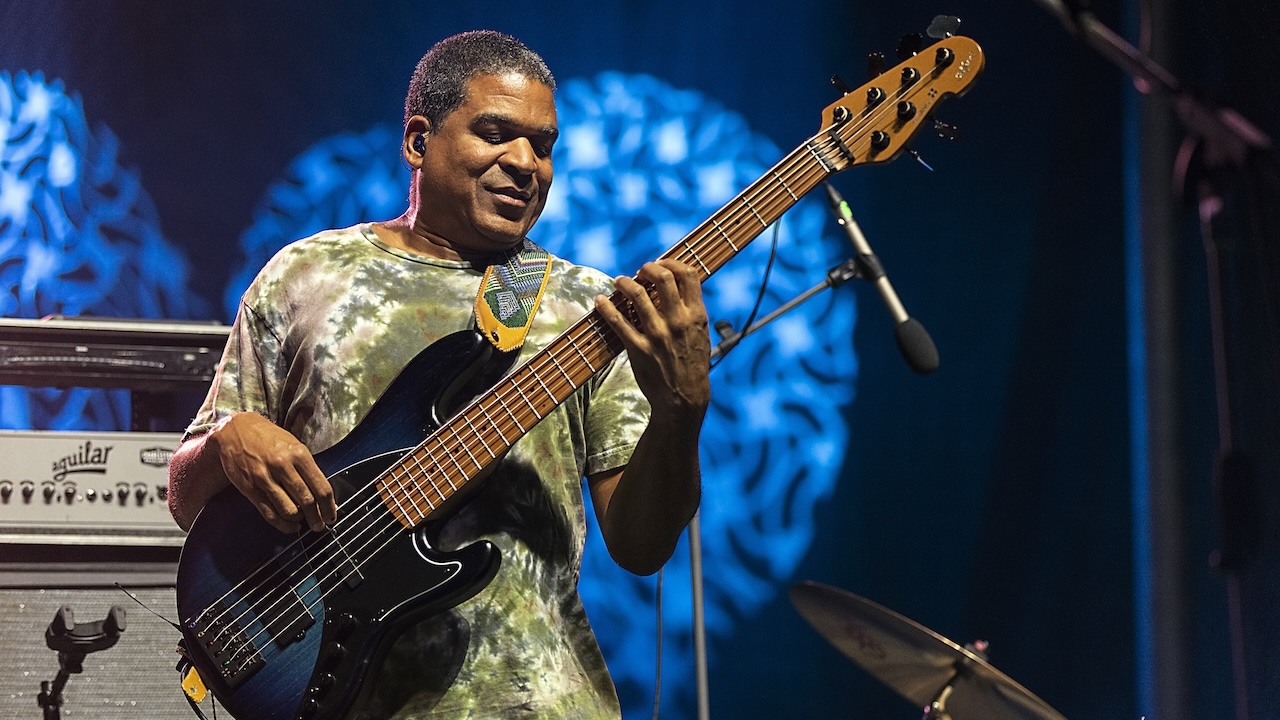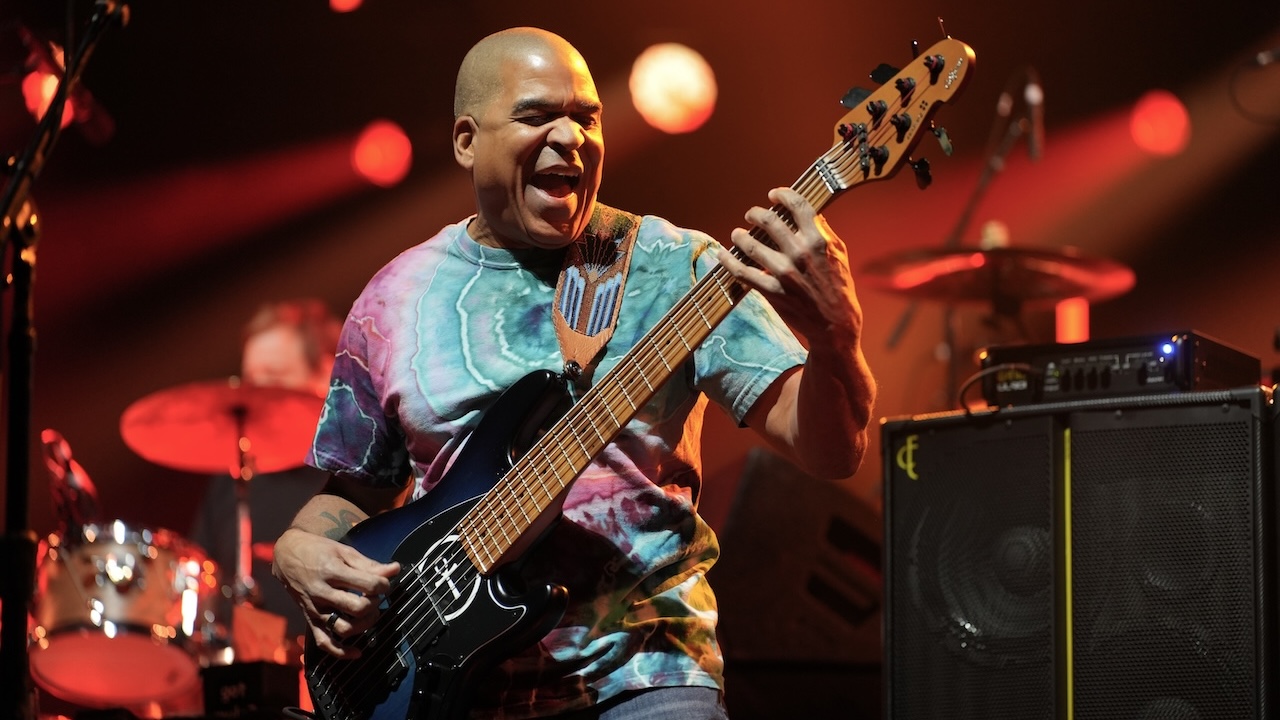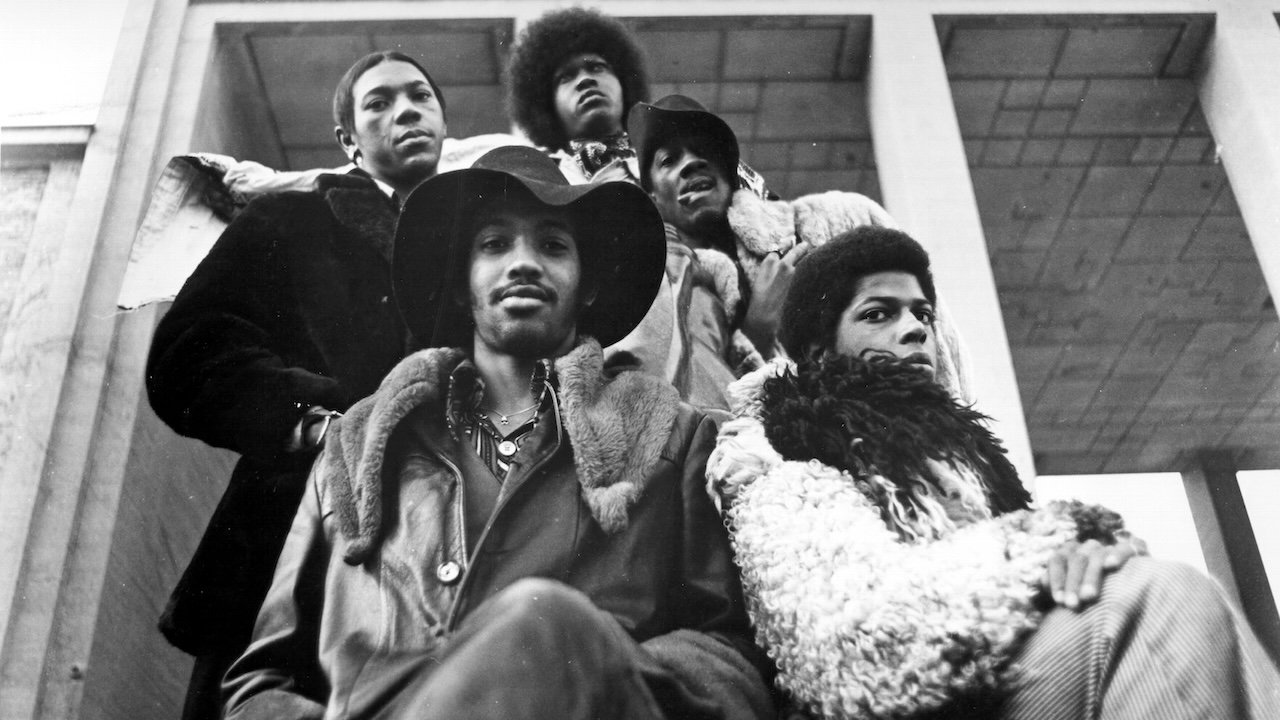“It’s so hard when you come in to bands like Grateful Dead and the Allman Brothers where the fans actually care who the bass player is”: How Oteil Burbridge set about replacing Phil Lesh to become Dead & Company’s new singing bass hero
Burbridge played with The Allman Brothers and Tedeschi Trucks Band before joining Dead & Company alongside guitarist John Mayer

All the latest guitar news, interviews, lessons, reviews, deals and more, direct to your inbox!
You are now subscribed
Your newsletter sign-up was successful
Bassist Oteil Burbridge is as in-demand to his fanbase as he is professionally. There's the muso crowd that laid early claim to him for his jazz and fusion-informed fingerboard feats and straight-to-the-heart, scat-'n'-play bass solos with Col. Bruce Hampton & the Aquarium Rescue Unit, followed by uber-respectable credits with the Jaco Pastorius Big Band, and Herbie Hancock.
There are the jam-band devotees who view him as a native son for his deep-grooving tenure with the Allman Brothers Band, and satellite projects with the Tedeschi Trucks Band, Vida Blue, Frogswings, BK3, Gov't Mule, members of Phish, and his own Peacemakers.
And now there are the adoring Deadheads, fit to be tie-dyed over their singing bass guitar hero in Dead & Company.
It was in 2015 that Burbridge was given the unenviable task of replacing Grateful Dead bassist Phil Lesh in a new incarnation of the band called Dead & Company.
“It’s so hard when you come in to bands like the Grateful Dead and the Allman Brothers Band where the fans actually care who the bassist is,” Burbridge told Billboard. “You don’t want to copy the original guy, but you feel obligated to honor what bass melodies the founding bass player crafted for the song.”

Lesh’s distinctive playing style defined many Grateful Dead songs, enabling the original lineup to roam freely from rock, blues and country through sprawling jams.
“Considering how brilliant Phil is and where he comes from conceptually, when you take that out of the mix, in a sense you don't have the Dead anymore,” said Burbridge in the February 2018 issue of Bass Player. “He's that big a part of their sound and feeling, and neither I nor anyone else can really replace him.”
All the latest guitar news, interviews, lessons, reviews, deals and more, direct to your inbox!
How did you get the bass chair in Dead & Company, and how did you prepare?
I got a call from Bob Weir's manager, Matt Busch, asking me to come and play with the guys, because they were thinking about continuing on after their final show in summer 2015.
I had done BK3 with drummer Bill Kreutzmann and Scott Murawski, so Bill and I had developed a chemistry, and I had already played with Bob, Phil Lesh, and Jeff Chimenti, so it went well. Then I saw photos of Mike Gordon at the Dead's rehearsal space, so I figured he got the gig.
A couple of months later Matt called and said, ‘You're up.’ Apparently, Mike had to pass on the gig due to Phish and his solo album. I knew about 20 Dead songs from various projects I'd done, and I picked my favorite 50 out of what they seemed to be playing a lot. Then I called John Mayer, who was already onboard.
He knew 70 songs, so we compared lists, and I learned the extras, as well. By the end of rehearsals, we were up to 80 or 90 songs.
You've called the gig a revelation for you.
For sure. Friends have been trying to get me into the Dead since high school, but I had to be older and more mature, having attempted to write lyrics and sing, to fully appreciate their music.
There are two key elements. First, the gig is very challenging, because the music is quite intricate. As Bob said to me, ‘Oteil, we were not dabblers!’ It's like architecture the way the songs are crafted, between the lyrics, the melodies, the chords, the grooves, the odd meters, and the wide variety of influences.
There are tunes that seem like a jam, and all of a sudden, 15 minutes in, the first verse starts! Or a bridge will happen three-quarters of the way in, and never again. Or each verse of a song will switch one chord.

Like Box of Rain – you wouldn't believe how hard that song is. At the same time, you're under absolutely no obligation to execute the songs correctly.
Musically, I'm using everything I've ever learned; it's the ultimate gig for me. We cover as many styles as we did in the Allman Brothers, but with a wider scope of harmony, and the lyrics are farther out as well; these guys are poets.
The other key is that from their start, this is a band that rejected preconceptions. There were no rules, which connects them to my biggest influences, like Miles Davis, Sun Ra, Jimi Hendrix, P-Funk, and Col. Bruce.
I keep asking myself, Why didn't I recognize this sooner? In a way it feels like it was all supposed to happen for me.
How have you approached replacing Phil Lesh?
Phil's approach was to do the opposite of what the expectation was. As a result, there really aren't a lot of set basslines in the Dead's music. Truckin' has one, as does Shakedown Street and Dancin' in the Streets, but most tunes don't. So I got a clean slate, in a way.
I come from a more traditional way of bass playing, which is rooted in the African tradition of the groove. But what I didn't realize is a lot of the Dead's music comes out of the same tradition. Bob hears a lot of reggae and funky halftime bass grooves in his head. For example, on Estimated Prophet, Bob always wanted Phil to play that kind of bassline, and Phil wouldn't do it!
With my roots, I naturally played it that way, and Bob dug it. He's encouraged me to take that approach on everything – play what you are. As a result, I always say I won over the crowds‘ asses before I won over their ears.
On the other hand, your improvisational abilities seem to mesh with the Lesh template.
Absolutely. There's so much I relate to in Phil's playing. I try to cop his style on Bertha, but in my voice. In some ways he's like a rock 'n' roll James Jamerson, playing counterpoint melodies on the bass, and it's all improvised. Those are the areas where I can connect with him.
Plus, I get a solo spot on Eyes of the World, which I really don't need because there's so much improvising on the gig, but it does allow me to try some chord-melody ideas. So I'm playing the most stretched-out stuff I can think of... in stadiums! Are you kidding me?
And you're singing lead on some songs, as well.
“Can you believe it? I sing in stadiums and people dig it. It blows my mind. That's another part of my personal growth from this gig, thanks to the guys’ insistence that I sing some songs. I'm doing Comes a Time, China Doll, and If I Had the World to Give, and I'm sharing lead with John on Ship of Fools.”
How do you reflect on your time with the Allman Brothers?
The greatest gift from that experience was learning about rock 'n' roll and other genres from the people who created them. I learned so much that I didn't know about Black music, from a long-haired white guy who looked like a biker, in Gregg Allman.
He'd play me amazing recordings of old soul artists I had never heard. Like the Dead, the Allmans are a unique gumbo of styles, with the influences of jazz, blues, R&B, British Invasion rock, folk, country, bluegrass, New Orleans, and Latin music; it was all stirred together.
Plus, I got to play with an insane number of greats at our Beacon shows – Roy Haynes, Stanley Clarke, Taj Mahal, Levon Helm, Hubert Sumlin, Little Milton, Dr. John, and Billy Gibbons. I stepped into history with that band. Musically, it made me feel so patriotic. The Allman Brothers taught me to love America!
How about your Tedeschi Trucks Band stint?
For years, I thought Derek Trucks and his wife should have a band together, and for it to happen and to get to be in it with my brother Kofi was a blast. But when you have an 11-piece band like TTB, you have to gig a lot to keep it going.
I didn't want to be on the road that much, so I stepped away after two years and two albums. But all the miles and the hard work we put in, you can hear it in the music. The live album we did really captures the band firing on all pistons.
Chris Jisi was Contributing Editor, Senior Contributing Editor, and Editor In Chief on Bass Player 1989-2018. He is the author of Brave New Bass, a compilation of interviews with bass players like Marcus Miller, Flea, Will Lee, Tony Levin, Jeff Berlin, Les Claypool and more, and The Fretless Bass, with insight from over 25 masters including Tony Levin, Marcus Miller, Gary Willis, Richard Bona, Jimmy Haslip, and Percy Jones.
You must confirm your public display name before commenting
Please logout and then login again, you will then be prompted to enter your display name.




